There are a lot of reasons why people might hate country music. Some people find the sound of it grating, while others may not like the lyrics or the themes that country songs often explore. In this Definitive Guide, we’ll take a look at some of the most common reasons why people hate country music and offer some helpful tips on how to get past those objections. Whether you’re a fan of country music or not, this guide is sure to offer something for everyone!
Cringey Repetitive Themes
One of the most common complaints about country music is that it often features repetitive, cringey themes. Songs about pickup trucks, drinking beer, and getting your heart broken are all too common in country music, and some people just can’t stomach it.
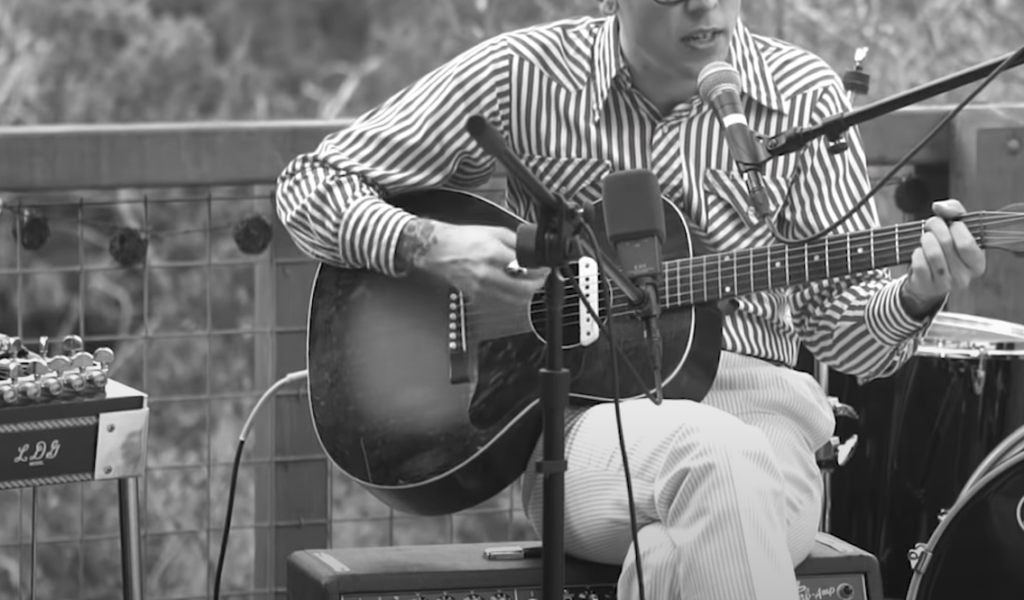
If you’re one of those people who can’t stand to hear another song about a truck or an ex-lover, then country music probably isn’t for you. But if you’re willing to give it a chance, there are plenty of great country songs out there that don’t rely on those tired old themes. Seek them out and you might be pleasantly surprised!
Country Pop
The next most common reason people hate country music is because of the “country pop” sound. This is a more polished, radio-friendly version of country music that often features elements of other genres like pop, rock, and hip-hop. While some fans love this new sound, others feel like it’s selling out the genre’s traditional roots.
Whatever your opinion on country pop may be, there’s no denying that it’s become one of the most popular subgenres in recent years. Thanks to artists like Taylor Swift and Florida Georgia Line, country pop has crossed over into the mainstream in a big way. And while some fans are thrilled with this new development, others can’t help but feel a little bit disappointed.[1]
Often Exaggerated Southern Accent
One of the most common complaints about country music is that the artists often sing with an exaggerated southern accent. This can be extremely off-putting for listeners who are not from the south, or who do not have any connection to that region of the country. While there are plenty of great country songs that do not feature this type of vocalization, it is still a very prevalent element in many popular tracks.[2]
Country Music is Old Fashioned
This is probably the most common reason people give for disliking country music. They say it sounds old-fashioned, or that it’s music for old people.
But this isn’t really fair.
That’s why many of the greatest country songs are about love, loss, and heartache. These are universal themes that everyone can relate to, no matter what their age.
And while it’s true that some country songs do reference specific time periods or places, there are plenty of contemporary country songs that deal with modern issues like social media addiction or small-town life.
So if you’re writing off country music because you think it’s old-fashioned, you might want to give it another chance. You might be surprised by how relevant it can be.[1]
Taste
People can dislike anything for any number of reasons. Maybe they had a bad experience associated with it, or maybe they just don’t like the way it sounds. When it comes to music, taste is completely subjective. There’s no right or wrong answer when it comes to what you like or don’t like.
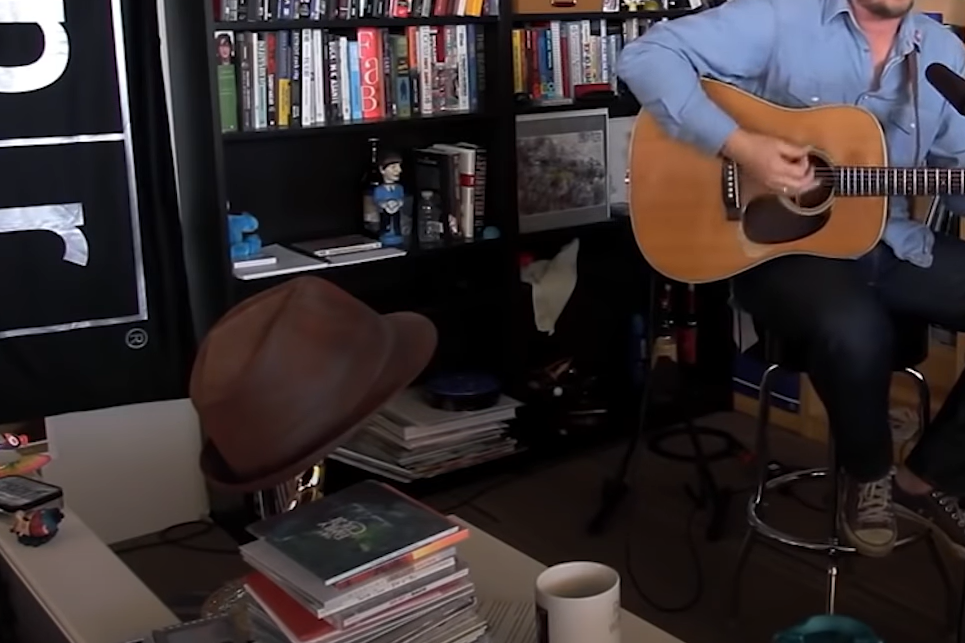
Some people simply don’t like the sound of country music. It can be too twangy or too slow for some people’s taste. Others find the lyrics to be clichéd or uninteresting. And then there are those who just don’t relate to the typical themes of country songs (love, heartache, drinking, etc.).
Whatever the reason, there’s no need to justify your taste in music to anyone. If you don’t like country music, that’s perfectly okay![2]
Supremacy of Modern Music
People tend to think that country music is a thing of the past. It’s not “cool” or “hip” like modern music. This is one of the biggest reasons why people hate country music. They think it’s old and outdated.
However, country music is still very popular today. In fact, it’s one of the most popular genres of music in the United States. According to Nielsen SoundScan, country music was the most consumed genre of music in 2017.[1]
Not Interesting Enough
One of the main complaints about country music is that it’s not interesting enough. People feel like they’ve heard it all before, and that there’s nothing new or exciting about it. This can be frustrating for fans of the genre who feel like they’re constantly being bombarded with the same old songs.
First, try listening to some of the newer artists on the scene. There are always fresh voices emerging in any music genre, and country is no exception. You might be surprised at how much you enjoy the new sound.
Another way to add some variety to your country music listening experience is to check out the many sub-genres that exist within the genre. From bluegrass to honky-tonk, there’s a lot of diversity to be found if you’re willing to explore it. Who knows, you might just find your new favorite type of country music.
If you’re still not sold on country music, there’s one last thing you can try. Just give it a chance! It might not be your favorite genre, but there’s no harm in giving it a listen. You never know, you might just find yourself enjoying it more than you thought. Who knows, you might even become a country music fan before long.[1]
Patriotism and Focus on Religion
One of the most common complaints about country music is that it is too patriotic and focused on religion. This can be a turn-off for people who do not share those values. Additionally, country music often portrays rural life in a positive light, which can make city-dwellers feel alienated.
Another issue is the focus on traditional gender roles. Country songs often celebrate men who are “real men” and women who know their place. This can be off-putting to listeners who do not identify with those roles. Finally, many people find the twangy melodies and simple lyrics of country music to be grating on the ears. All of these factors contribute to why some people hate country music.[1]
Lifestyle
People who live in rural areas are more likely to hate country music. This is because they associate music with a lifestyle that they don’t want to live.
This is because the people who listen to country music are less likely to go to college and get a degree.
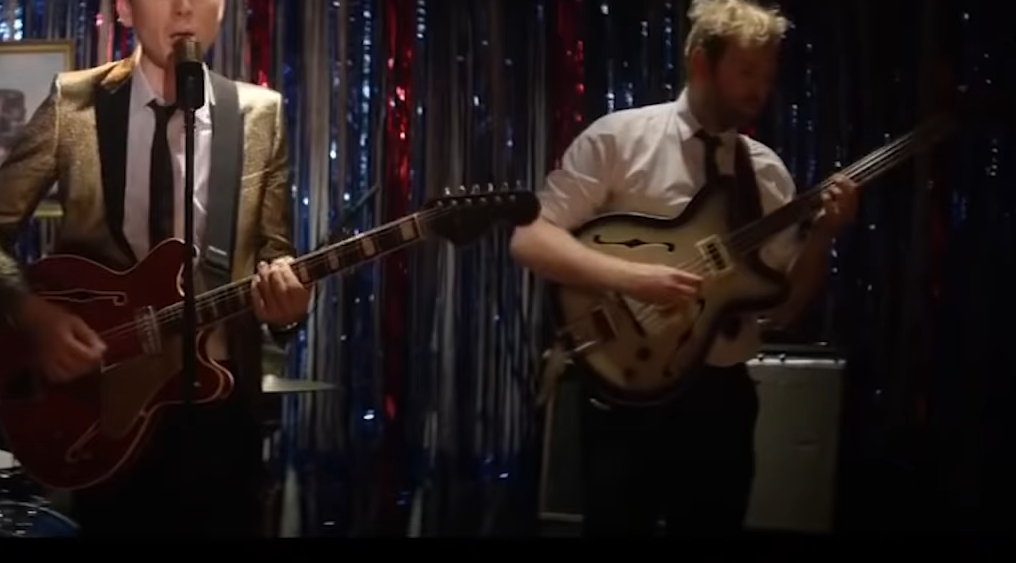
Finally, people who have blue-collar jobs are more likely to hate country music. This is because they feel like the music represents a lifestyle that they can’t relate to.[1]
Decoding the Dislike for Country Music: Exploring Common Criticisms
Country music has its share of critics. Here’s a comparison of common criticisms directed at country music and counterarguments that shed light on its enduring appeal.
| Criticisms | Counterarguments |
|---|---|
| Lyric Repetition | While some country songs may have repetitive lyrics, this is a characteristic of many music genres. There are also plenty of country songs with rich and diverse storytelling. |
| Stereotypical Themes | Country music often explores themes like love, heartbreak, and rural life, but it also delves into complex, thought-provoking subjects, reflecting the diversity of human experiences. |
| Twangy Vocals | The distinctive vocal style in country music is an acquired taste, but it’s a defining feature that sets it apart. Many artists have smoother vocal styles for those who prefer it. |
| Over-Commercialization | Like any popular genre, country music has seen commercialization, but there’s still a thriving underground scene with authentic, heartfelt music to discover. |
| Genre Stereotypes | Assuming that all country music is the same overlooks the vast diversity within the genre, from traditional country to contemporary crossovers, ensuring there’s something for everyone. |
Explanation of the Table:
- Criticisms: Lists common criticisms directed at country music.
- Counterarguments: Provides counterarguments that challenge these criticisms and highlight the genre’s strengths.
Country music isn’t immune to criticism, but it’s essential to consider the broader picture. While some songs may have repetitive lyrics or stereotypical themes, there are countless country songs that offer diverse and meaningful narratives. The twangy vocals that define the genre are part of its charm, but there are also artists with smoother styles for varied preferences.
While commercialization is a reality, there’s still a wealth of authentic country music to explore in both the mainstream and underground scenes. Lastly, dismissing country music based on genre stereotypes overlooks the incredible diversity within the genre, catering to a wide range of tastes and preferences.
By addressing these criticisms and exploring the depth and diversity of country music, one can gain a deeper appreciation for a genre loved by millions worldwide.
FAQ
How do I stop hating country music?
If you’re not a fan of country music, that’s OK! There are plenty of other genres out there that might be more to your taste. But if you’re wondering why people hate country music, here are some possible explanations:
- They think it’s too twangy or folksy.
- They find the lyrics cheesy or clichéd.
- They associate it with rednecks or hillbillies.
- They think it’s boring or repetitive.
What percent of the population likes country music?
This is a difficult question to answer definitely because musical taste is subjective. However, a 2017 study by Nielsen found that country music was the most popular genre in the United States, with 24 percent of respondents saying they preferred it to any other genre. This was followed by rock (21 percent), pop (16 percent), and hip-hop/R&B (15 percent).
What is the least popular music genre?
The answer may surprise you, but it’s country music. In fact, a recent study showed that only 19% of Americans say they like listening to country music. That’s pretty low considering other genres like rock and pop boast significantly higher numbers.
What music genres are dead?
This is a question that gets asked a lot, and it’s tough to answer. While some genres may be on the decline, it’s hard to say that any one genre is completely “dead.” That said, there are definitely some genres that are less popular than they used to be. One of those genres is country music.
There are a number of reasons for this decline, which we’ll get into later. But suffice it to say, country music is not as popular as it once was.Are music genres disappearing?
The answer to this question is a resounding no. In fact, genres are becoming more and more defined as the music industry continues to grow. However, there is one genre that seems to be caught in the middle: country music.
Country music has been around for centuries, and it shows no signs of disappearing anytime soon. However, it has been gradually losing its popularity over the past few decades. In 2020, only 11 percent of Americans said they loved country music, down from 15 percent in 2000.
Why do some people have a strong aversion to country music?
Some people may dislike country music due to personal preferences and different musical tastes. The genre’s themes, such as rural life, love, and heartbreak, may not resonate with everyone.
Is the perception of country music influenced by stereotypes?
Yes, some individuals may dislike country music because they associate it with stereotypes like “hillbilly” culture or conservatism. These stereotypes can shape their negative opinions.
Are there regional factors that contribute to dislike of country music?
Regional differences can play a role. People from urban areas might be less exposed to country music and find it less relatable compared to those from rural regions.
Is it common for younger generations to dislike country music?
Yes, some younger individuals may not appreciate country music because they grew up with different genres that align more with their generation’s culture and trends.
Do musical preferences change over time, causing some to dislike country music later in life?
Musical tastes can evolve with age, and some people may develop an appreciation for country music as they mature and their life experiences change.
Can negative associations with country music come from political or cultural differences?
Yes, political and cultural differences can contribute to disliking country music. Some may associate the genre with values or beliefs that clash with their own.
Are there misconceptions about country music that lead to dislike?
Misconceptions, like thinking all country songs are about the same topics, can lead to dislike. Country music offers diverse themes beyond its stereotypes.
Does the instrumentation in country music affect people’s dislike of it?
The use of specific instruments like banjos and steel guitars can be an acquired taste, and some people may not enjoy these sounds, influencing their dislike of the genre.
Do negative experiences with country music in the past contribute to people’s hatred of it?
Yes, negative experiences, such as being exposed to repetitive or poorly executed country music, can lead to a strong aversion to the genre.
Can personal biases and closed-mindedness play a role in disliking country music?
Absolutely, personal biases and a closed-minded approach to music can prevent individuals from giving country music a fair chance and lead to dislike.
Useful Video: Country Music: The Good, The Bad, and The Ugly | Idea Channel | PBS Digital Studios
Conclusion
So, there you have it. The most common reasons people say they hate country music, and some tips on how to get over it. If you’re still not a fan of the genre, that’s okay. There are plenty of other genres out there to choose from. But don’t write off country music without giving it a fair chance first. You might be surprised by how much you enjoy it. Thanks for reading!
Do you have any questions or comments? Leave them below and I’ll be happy to answer them. And if you found this article helpful, please share it with your friends! Thanks for reading!
References:
- https://www.musicianwave.com/why-do-people-hate-country-music/
- https://radio.rutgers.edu/why-people-hate-country/

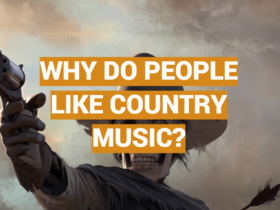


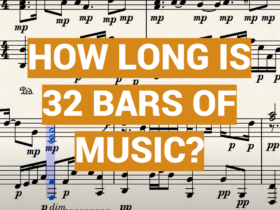
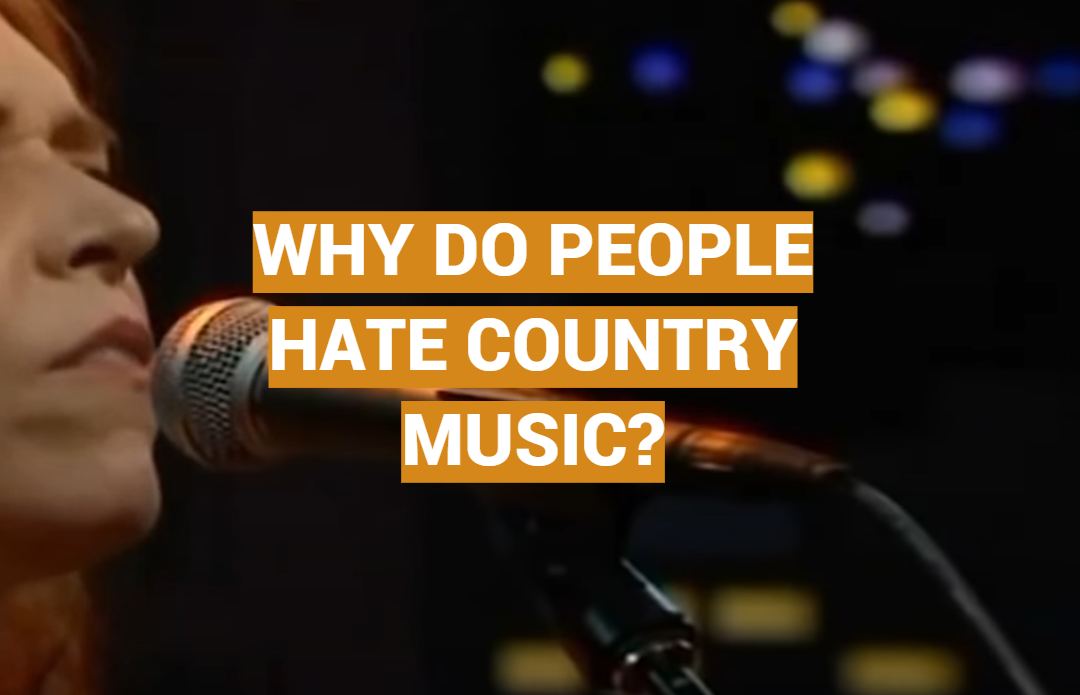




Country music often gets a bad rap, but for me, it’s all about perspective. Growing up in a small town, country tunes were the soundtrack of my youth. The storytelling aspect of the lyrics painted a vivid picture of rural life, resonating with the experiences I knew. It’s not just music; it’s a cultural connection. Perhaps those who dislike country haven’t found that personal resonance or haven’t experienced the authenticity embedded in the genre.
As someone who initially dismissed country music, I later found myself drawn to its raw honesty. It’s not about hiding behind elaborate production; it’s about baring your soul through music. The simplicity of acoustic instruments and the sincerity in the vocals have a way of cutting through the noise. For those who harbor a distaste, maybe they haven’t uncovered the emotional depth that lies beneath the twangy surface.
I used to be part of the “I hate country music” camp until I stumbled upon the storytelling brilliance of artists like Johnny Cash and Dolly Parton. The vivid narratives and genuine emotions conveyed in their songs transcended genres for me. It made me realize that dismissing an entire genre is like judging a book by its cover. Maybe those who harbor a dislike haven’t discovered the rich storytelling tradition that lies at the heart of country music.
Country music often faces criticism for being formulaic, but for me, that predictable structure is part of its charm. There’s a comforting familiarity in the twang of a steel guitar and the storytelling that unfolds verse by verse. It’s like returning to a cherished book or movie – you know what to expect, and that’s precisely what makes it enjoyable. Perhaps those who dislike country haven’t embraced the comfort of its musical predictability.
Some folks shy away from country music due to its perceived conservatism, but I’ve found it to be a diverse genre that reflects a broad spectrum of perspectives. Artists like Kacey Musgraves and Willie Nelson, for example, challenge traditional norms and bring progressive ideas into their music. It’s a reminder that within the seemingly homogeneous landscape of country, there are voices that break the mold. Maybe those who dislike country haven’t explored its diverse facets and the evolving narratives within the genre.
Initially skeptical of country music, I discovered its charm lies in its relatability. The themes of heartbreak, love, and the simple joys of life are universal. It’s like a musical diary that everyone can find a page in. Those who claim to hate country might not have realized the genre’s power to mirror their own experiences, turning relatability into a strength.
As a city dweller, I once dismissed country music as too rural for my taste. However, a chance encounter with artists like Keith Urban and Taylor Swift brought a refreshing blend of country-pop that resonated with my urban experiences. The fusion of genres opened my eyes to the genre’s adaptability. Perhaps those who harbor disdain haven’t explored the versatility that contemporary country offers.
Having experienced the electrifying energy of a live country concert, I can’t fathom why someone would hate the genre. The camaraderie among fans, the infectious enthusiasm, and the genuine connection between artists and their audience create an unparalleled atmosphere. Those who dislike country might be missing out on the transformative experience of a live show that transcends musical preferences.
Country music’s association with certain stereotypes often overshadows its musical merits. Personally, I’ve come to appreciate the virtuosity of country musicians, from the intricate guitar picking to the soul-stirring vocals. Those who dismiss country as musically inferior might not have delved into the technical prowess and artistic talent embedded in the genre.
Growing up surrounded by rock and pop enthusiasts, I initially resisted country music. However, the genre’s ability to tell stories with unparalleled vividness drew me in. Songs like “The Night We Met” by Lord Huron or Chris Stapleton’s “Tennessee Whiskey” paint pictures so vivid, they’re like musical movies. Those who claim to hate country might not have uncovered the cinematic storytelling that defines the genre’s narrative prowess.
Country music’s emotional resonance is what converted me from a skeptic to a fan. There’s an authenticity in the lyrics and melodies that digs deep into the human experience. Whether it’s the ache of a lost love or the joy of a summer night, country music has a way of capturing emotions with a genuine sincerity. Those who dislike it might not have fully embraced the emotional catharsis that country music can offer.
I used to be in the “I hate country” club until I stumbled upon the genre’s rich history. Exploring the roots of country, from Hank Williams to Patsy Cline, opened my eyes to its evolution and the influence it has had on other genres. Perhaps those who dislike country haven’t traced its historical journey, understanding how it laid the foundation for much of today’s popular music.
As a lover of complex musical arrangements, I initially overlooked country for its perceived simplicity. However, diving into the works of artists like Brad Paisley or Vince Gill revealed a hidden world of musical intricacies. The masterful guitar solos and nuanced instrumentations added a layer of sophistication that challenged my initial assumptions. Those who dismiss country for being musically elementary might not have explored the genre’s depth and complexity.
Country music’s ability to create vivid imagery with lyrics sets it apart for me. Whether it’s visualizing a dirt road or feeling the warmth of a front porch sunset, country songs transport you to a specific time and place. Those who claim to hate country might not have let themselves get lost in the evocative storytelling that turns lyrics into a journey.
Collaborations between country and artists from other genres, like the fusion of country and rap in collaborations such as Florida Georgia Line and Nelly’s “Cruise,” showcase the genre’s adaptability. These crossovers bring a fresh perspective to country music, making it more accessible to a diverse audience. Those who dislike country might not have explored the genre’s capacity to transcend its traditional boundaries and embrace new influences.